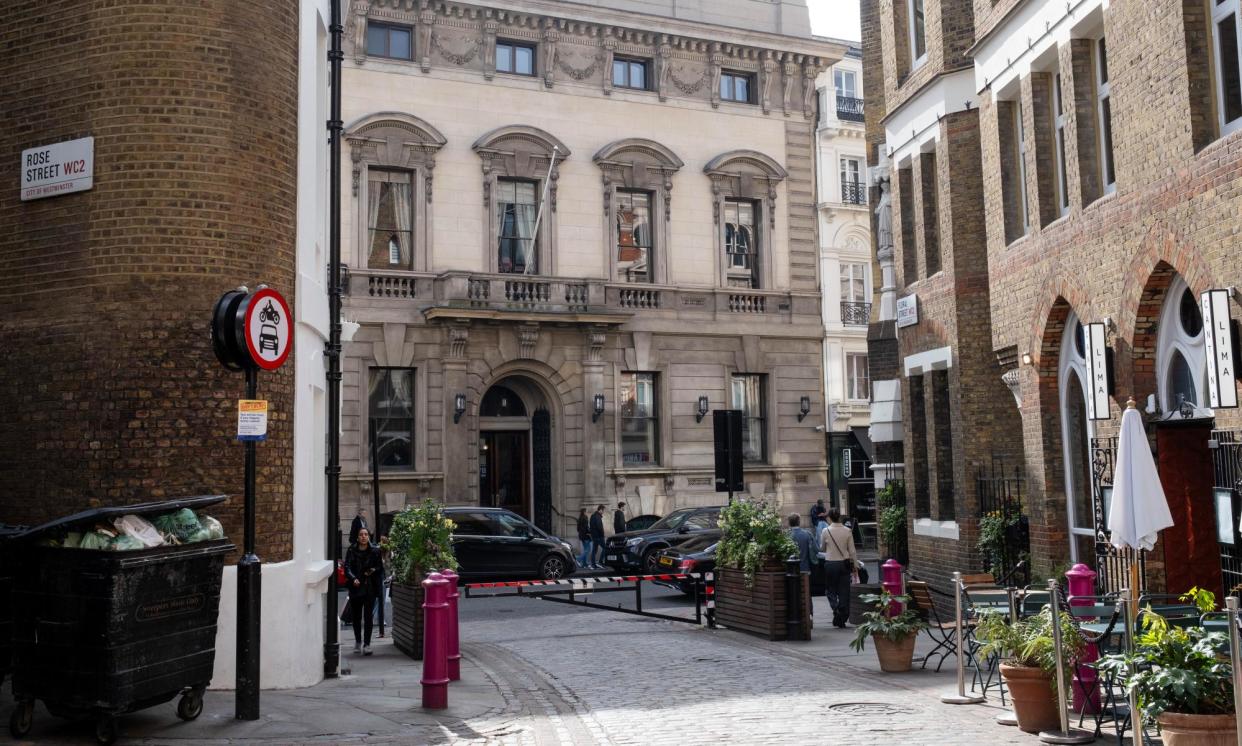‘Where actors and men of refinement might meet’: history of the Garrick Club

The men-only Garrick Club has finally voted to allow women to become members, 193 years after the London institution first opened its doors.
The decision comes after decades of pressure on the club to change its rules. Here are the key moments that have led to this point:
1831 According to its website, the Garrick was founded in 1831 by a group of “literary gentlemen” under the patronage of the brother of King William IV, Prince Augustus Frederick, the Duke of Sussex.
“They announced that the club would be a place where ‘actors and men of refinement and education might meet on equal terms’, where ‘patrons of the drama and its professors were to be brought together’, and where ‘easy intercourse was to be promoted between artists and patrons’,” the website says.
The club was named after the great 18th-century actor David Garrick.
Late 1990s The human rights lawyer Anthony Lester hopes to propose the writer and journalist Mary Ann Sieghart as a member, but the club chair blocks the suggestion and takes her for lunch in the club instead.
2010 The passing of the Equality Act 2010 means the club can no longer prohibit women – as guests of members – from sitting at its main 30-seat central table, but it remains extremely rare for a female guest to be invited to eat there.
Most of the time they will be seated at a table on the edge of the dining room and handed a menu that gives no indication of prices; club rules state guests (and therefore women) are not “permitted to pay for anything whatsoever”.
2011 Hugh Bonneville proposes fellow actor Joanna Lumley for membership; his decision to write her name in the book of proposed candidates triggers such anger among some of the club’s 1,500 members that the page is ripped out from the nomination book. Some members scrawl expletives on her nomination page, and one writes: “Women aren’t allowed here and never will be.”
2015 The club votes to continue its policy of not admitting women as members. At the club’s annual general meeting at the Palace Theatre on Tottenham Court Road, 50.5% vote in favour of allowing women to join. The club requires a two-thirds majority before rules can be changed.
September 2023 It emerges that Michael Beloff KC, a barrister who had previously concluded that women could not be proposed under the club’s rules, has prepared a new legal opinion stating that there was “now a cogent argument” that the Law of Property Act 1925 means “he” and “she” can be used interchangeably in contracts.
November 2023 A fresh survey of members finds 51% of those who participated are in favour of admitting women, while 44% are opposed. In total, 76% of the club’s membership take part in the ballot; 53 people (4%) say they are undecided.
18 March 2024 – The club’s membership list is made public for the first time by the Guardian, featuring scores of leading lawyers, heads of publicly funded arts institutions, the head of the civil service and King Charles.
Members also include the deputy prime minister, the secretary of state for levelling up, the chief executive of the Royal Opera House as well as Richard Moore, the head of the Secret Intelligence Service (MI6), and Simon Case, who as cabinet secretary is the prime minister’s most senior policy adviser and the leader of nearly half a million civil servants.
20 March Case and Moore resign their memberships.
22 March A group of more than 60 lawyers in England and Wales call on all judges who are members of the Garrick to resign from it immediately.
25 March It is announced that at least four senior judges have resigned from the club. The Judicial Office confirms that the appeal court judge Keith Lindblom and the high court judges Nicholas Cusworth, Nicholas Lavender and Ian Dove have resigned.
28 March Seven women with leading positions in the British establishment are nominated as prospective female members of the club in the event it agrees to change its rules.
The classicist Mary Beard, the former home secretary Amber Rudd, the Channel 4 News presenter Cathy Newman and the Labour peer Ayesha Hazarika are among the first names put forward.
Also on the list are the actor Juliet Stevenson, Margaret Casely-Hayford, who chairs the trustees of Shakespeare’s Globe and is chancellor of Coventry University, and Elizabeth Gloster, formerly an appeal court judge.
15 April A high court judge is removed from presiding over a case involving an alleged rape and domestic abuse victim, in part because of his membership of the club. Sir Jonathan Cohen was due to hear a family court case involving a dispute between a separated couple over shared care arrangements for their child, but another high court judge rules Cohen should not hear the case.
7 May The club votes that female members should be allowed to join.


